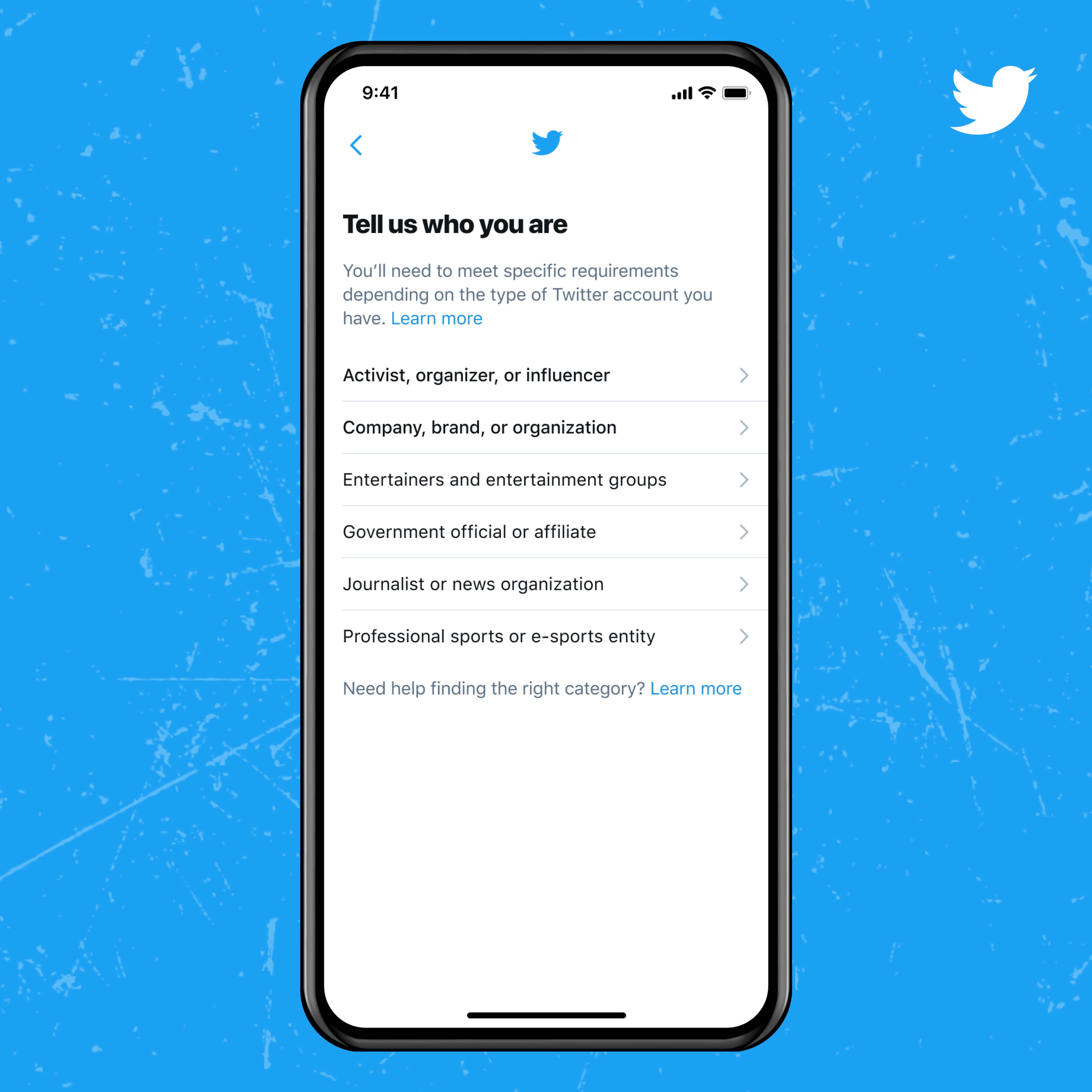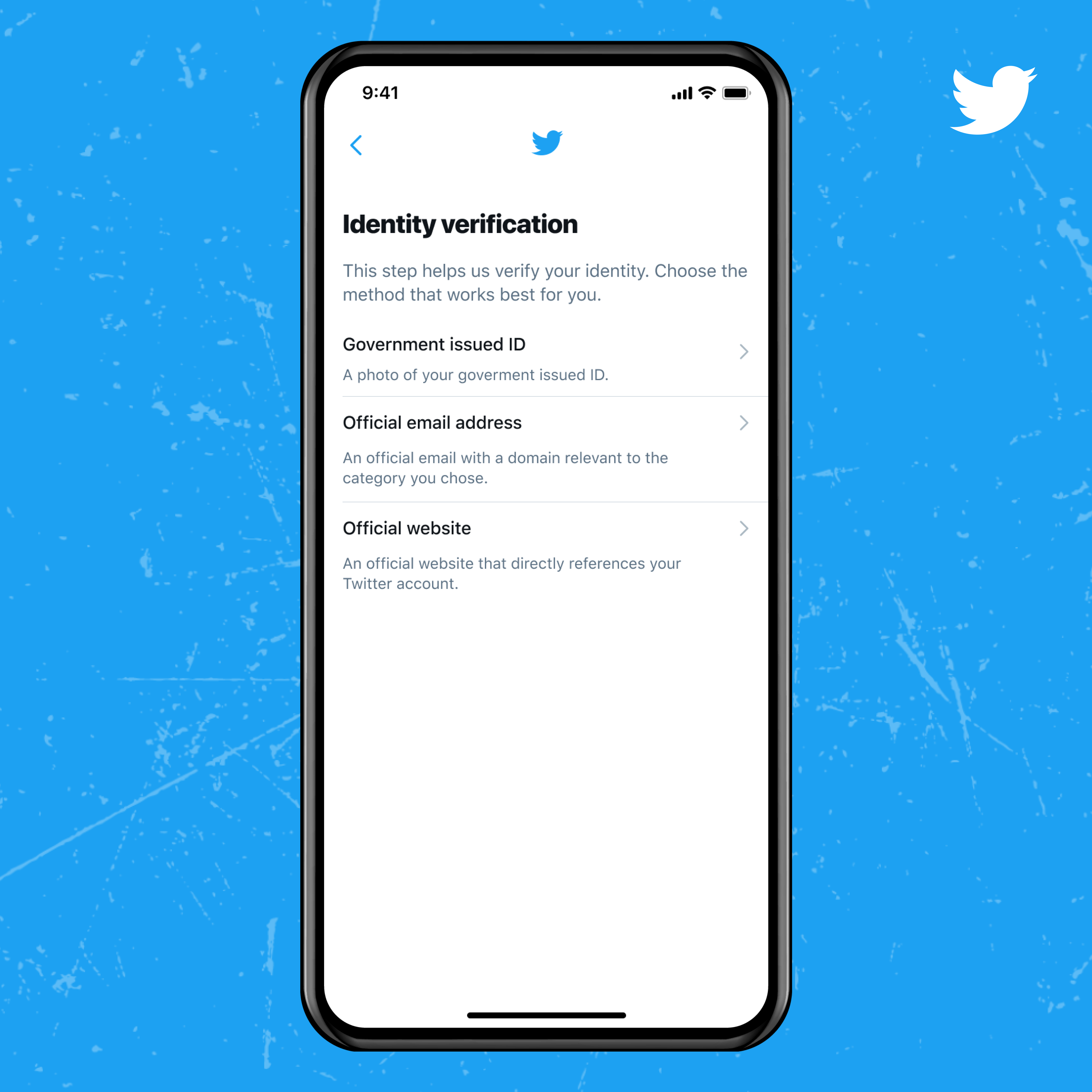Twitter is once again accepting public applications from users seeking verification, and rolling out new guidelines to follow in order to keep the verified badge.
All users will soon be able to submit a verification application directly from their account settings screen.
Whether an application is accepted will depend the user fitting into one of six categories that are eligible for verification.
Verification applications have been closed to the public since 2017. Twitter has continued to verify accounts on a case by case basis, though some individuals and organizations deserving of verification have invariably been left out.
At the time, Twitter said it decided to close public applications due to the perception that a verified badge implied an endorsement.
That was never the case, and hopefully people now have a better understanding what a verified badge means.
Verification was meant to authenticate identity & voice but it is interpreted as an endorsement or an indicator of importance. We recognize that we have created this confusion and need to resolve it. We have paused all general verifications while we work and will report back soon
— Twitter Support (@TwitterSupport) November 9, 2017
It was announced last year that Twitter would be relaunching the public verification program in 2021 with a few changes made.
Here we are and the new program is now rolling out. Let’s take a look at what’s new.
Advertisement
Continue Reading Below
What ‘Verified’ Means, According to Twitter
Twitter clarifies that a blue badge indicates that an account of high public interest is authentic. It doesn’t mean anything more than that.
Regardless of how authentic an account is, however, a verification badge can be removed for repeated violations of Twitter’s rules and guidelines.
In addition, Twitter’s new guidelines state verification status be revoked for the following reasons:
- The account becomes inactive or incomplete.
- The person is no longer in the position which initially made them eligible for verification.
- Attempts made to impersonate or mislead users by changing display name or bio.
- Severe violations committed that result in immediate suspension.
Advertisement
Continue Reading Below
These revised guidelines should help prevent issues with people misinterpreting verification badges as endorsements from Twitter. Verified users cannot engage in bad behavior and stay verified.
That’s what it take to keep a verified badge. Here’s what’s required to get one in the first place.
Twitter Verification Eligibility
To qualify for verification, users must fit the criteria of one of the six categories listed below:
- Government
- Companies, brands and organizations
- News organizations and journalists
- Entertainment
- Sports and gaming
- Activists, organizers, and other influential individuals
Advertisement
Continue Reading Below
In addition to meeting category-specific eligibility, users must be active on Twitter within the last six months, have a complete profile, and have a confirmed email address or phone number.
How to Apple For Twitter Verification
Verification applications will be available to everyone over the next few weeks from the Twitter app’s Account Settings tab.
The gradual rollout means some users may have access right now while others will have to be patient and wait a little while. With this approach, Twitter can ensure all applications are dealt with in a timely manner.
The application process consists of telling Twitter which of the eligible categories you belong to, and the providing a piece of ID which proves your identity.
Advertisement
Continue Reading Below
Here are some example screenshots:


Once an application is submitted, Twitter says users can expect a response in a few days to a few weeks. If an application is approved, the blue badge will be automatically applied to the user’s profile.
Advertisement
Continue Reading Below
Twitter plans to add more categories to the eligibility list later this year, such as scientists, academics, and religious leaders.
Source: Twitter
Twitter Verification Open For Public Applications - Search Engine Journal
Read More

No comments:
Post a Comment